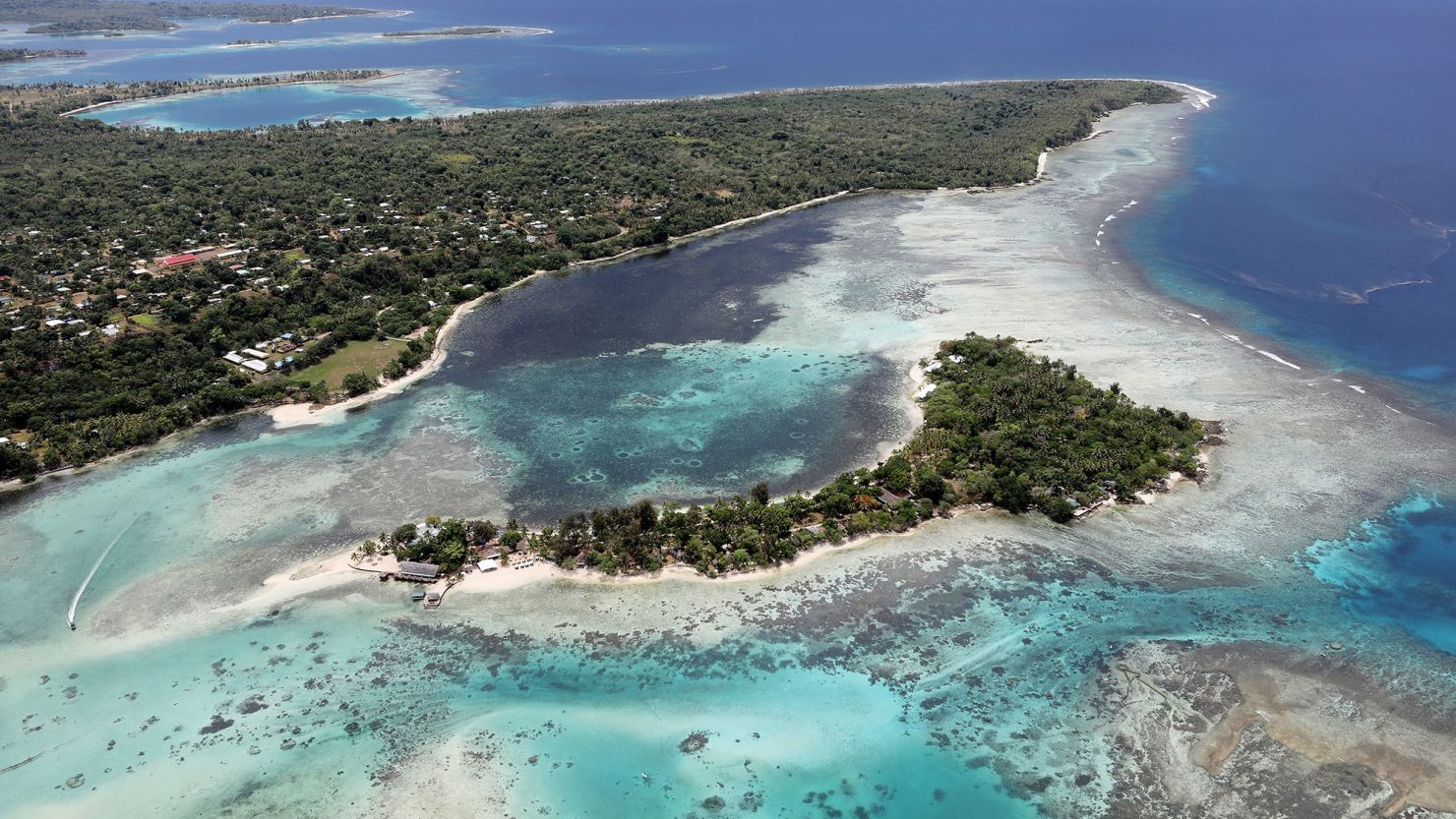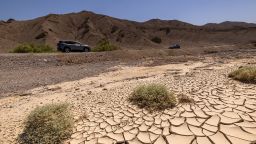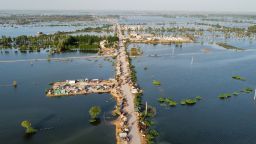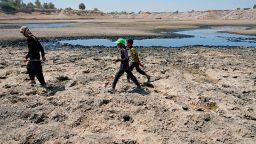Editor’s Note: John D. Sutter is a CNN contributor, climate journalist and independent filmmaker whose work has won the Livingston Award, the IRE Award and others. He recently was appointed the Ted Turner Professor of Environmental Media at The George Washington University. The opinions expressed in this commentary are his own. View more opinion at CNN.
In 1991, the small island nation of Vanuatu raised a question on the global stage that rich nations have been avoiding ever since: Who should pay for climate catastrophe?

At the time, Vanuatu – on behalf of an alliance of small-island states – argued quite reasonably that polluters should pay for the costs of their pollution.
It was an urgent question – with remarkable foresight. Vanuatu is in a low-lying archipelago in the Pacific Ocean, and its territory is threatened as global temperature increases contribute to rising sea levels worldwide.
Indeed, entire nations could be lost if fossil fuel pollution continues unabated.
There should be an “insurance pool … used to compensate the most vulnerable small island and low-lying coastal developing countries for loss and damage resulting from sea level rise,” Vanuatu’s ambassador, Robert Van Lierop, proposed to United Nations climate negotiators, according to a 2019 article in the journal “Climate Policy.”
More than 30 years later, this issue of irreversible “loss and damage” from the climate crisis is set to be one of the central issues as diplomats and world leaders convene in Egypt for the COP27 climate negotiations.
After decades of deflection, it’s overdue for high-polluting countries like the United States to take this question seriously. It’s clear that polluters should be held accountable for these losses to territory, culture, life and property.
Yes, it is also absolutely critical that the world abandons fossil fuels as quickly as possible. That is another central discussion point at COP27, and the world is well behind on its goal of holding warming to 1.5 or at most 2 degrees Celsius above pre-industrial averages. (We’re on track for about 2.7 degrees of warming, based on current policies; recent climate bills passed by the US Congress are a step forward, but are not enough).
The less carbon we put into the atmosphere, the less risk we put into the climate system — with important consequences for sea levels, storms, drought, biodiversity and so-on.
Still, there can be no justice without action on loss and damages.
Arguments against action have taken many forms over the decades. The most laughable, in retrospect, is that this was a problem for the future rather than the present.
We now see clearly that the climate crisis is supercharging extreme weather worldwide. Look no farther than the deadly floods in Pakistan this summer or Hurricane Ian in Florida this September. Disasters are getting more expensive because they’re becoming more intense as humans continue to burn fossil fuels and swamp the atmosphere with heat-trapping gasses.
That may feel like a new phenomenon, but it’s been decades in the making. Scientists linked a deadly 2003 heat wave in Europe, for example, to human-caused warming. That heat wave killed an estimated 20,000 people.
The onslaught of ever-worsening heat waves, droughts, wildfires and storms can feel both urgent and numbing. The truth is that as long as humans have been burning fossil fuels, we’ve been making the planet more dangerous.
Other arguments against loss-and-damage payments should be seen plainly for what they are: excuses and stall tactics. The harm is undeniable at this point, as is the cause. Oxfam estimates these climate losses will total $1 trillion per year by 2050.
What’s trickier is sorting out the mechanism for payment.
The UN’s Secretary General called in September for a tax on fossil fuel profits.
“The fossil fuel industry is feasting on hundreds of billions of dollars in subsidies and windfall profits while household budgets shrink and our planet burns,” António Guterres said.
“I am calling on all developed economies to tax the windfall profits of fossil fuel companies. Those funds should be re-directed in two ways: to countries suffering loss and damage caused by the climate crisis; and to people struggling with rising food and energy prices,” he added.
The oil and gas industry has raked in $2.8 billion per day in profits over the last 50 years, according to a recent analysis. That includes more than $31.3 trillion in profit for fossil fuel companies between the year 2000 and 2019, according to a recent report, “The Cost of Delay,” released by the Loss and Damage Collaboration and supported by two dozen organizations.
That $31 trillion in profits is about 60 times what would have been needed to cover economic losses from climate disasters in the world’s most vulnerable countries over that same period, according to the report. Those profits should be seen as immoral given what we know — and have known for decades now — about the harm burning fossil fuels cases globally.
Last year’s COP26 in Scotland resulted in promises to continue discussing the issue of “loss and damage” but there was no real action. Vanuatu and other vulnerable nations shouldn’t be put on hold for further years or decades. It’s clear that this bill is substantially overdue.
Short of international efforts to fund a loss-and-damage process, countries and individuals are turning to the courts. A Peruvian farmer, for example, is suing a German fossil fuel company over a melting glacier that threatens his home and farm. The suit, filed in 2015, according to news reports, claims the German company, RWE, should be liable for its proportion of the damages, in line with the proportion of global fossil fuel pollution it has created. (RWE is contesting the lawsuit and says it should not be held responsible for the damage.)
And in 2021, Tuvalu and other countries formed the Commission of Small Island States on Climate Change and International Law. The aim is to explore claims in international courts.
Get our free weekly newsletter
- Sign up for CNN Opinion’s newsletter.
- Join us on Twitter and Facebook
“Litigation is the only way we will be taken seriously while the leaders of big countries are dillydallying,” Gaston Browne, the Prime Minister of Antigua and Barbuda, said last year, according to The New York Times. “We want to force them to respond in a court of law.”
Those efforts should be supported, but the fair and proactive thing is for rich countries to impose taxes on fossil fuel profits. That can be done as part of UN climate negotiations.
It won’t fix the crisis, but it would help establish a sense of climate justice.
Thirty-one years is long enough to wait.






